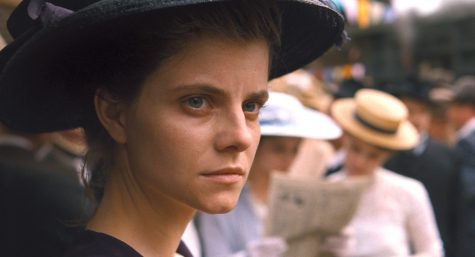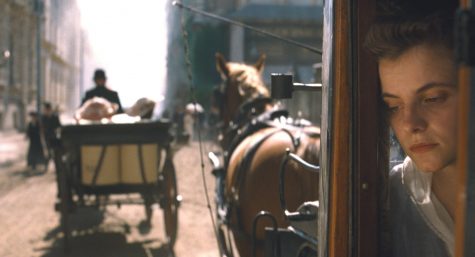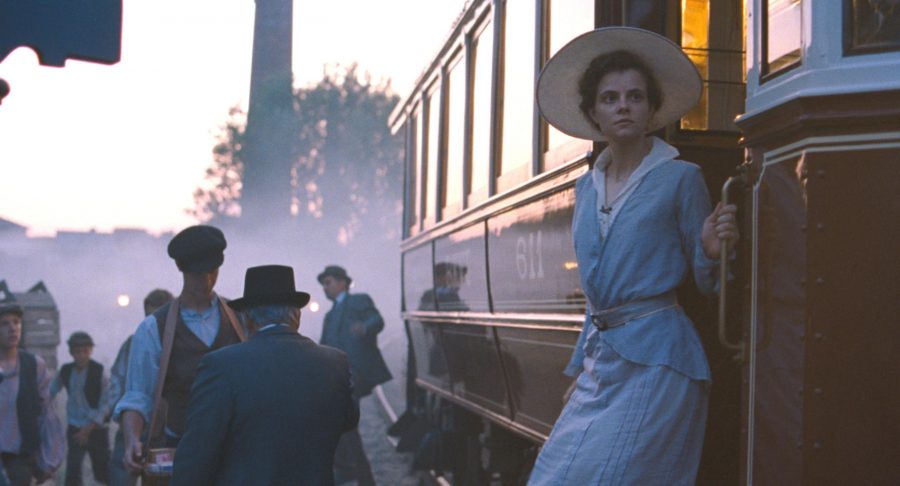While most war films have either entered the conflict directly — most recently Christopher Nolan’s “Dunkirk” — or take place in the mere days or weeks leading up to bloodshed, Oscar-winning director László Nemes took a more unconventional approach in his second feature, “Sunset.” He examines a turbulent Austro-Hungarian Empire on the precipice of World War I through the microcosm of a millinery, a hat making business. The concept feels innovative, but is ultimately not as successful in execution as his debut film, “Son of Saul.”
The film follows Irisz Leiter (Juli Jakab), a young woman who left Trieste, Italy with hopes of securing a job at an illustrious millinery in the rapidly modernizing city of Budapest. The millinery uncoincidentally bears her surname because it once belonged to her parents, who died in a mysterious fire. Orphaned at the age of two, Irisz seeks connection with this establishment as it is her parents’ only legacy. After being effectively shooed from the millinery by the suspicious new owner Oszkár Brill (Vlad Ivanov), Irisz learns that she might have a brother from a sleazy coachman. Irisz takes this lead and begins a relentless pursuit of the truth about her family history.

It’s obvious that tremendous craftsmanship is behind this film. Set in 1913, every painstaking detail put into the costumes and the sets is beautiful and immerses the viewer in the world of a bygone Budapest. Nemes shows this city through the innocent civilian eyes of Irisz, also removing the oft-seen male soldier perspective that dominates the war genre.
Despite the exquisite costuming and set design, however, the story itself is not up to par. For all the attention given to establishing a period aesthetic, it’s unfortunate Nemes sacrificed a rich story in the process.

The narrative is decorated with gaping holes, boring plot points and a graphic rape scene that could have been removed from the film entirely. While Irisz’s journey sounds emotional at its surface, she lacks any agency as a character. Most of the movie consists of her only being told where to go and the running thread of finding her family soon loses any emotional resonance because of its poor execution. What is even more disappointing is the eventual meeting between Irisz and her brother is just as underwhelming as the buildup to it. Irisz learns her brother is widely despised and feared because he has spearheaded a rebellion against their family millinery. What began as an intimate quest for kinship clumsily morphs into a crusade to expose the deceit and corruption of their family’s former hat shop, but even those secrets are not entirely made clear by the end.
It is undeniable that the film had a lot of potential because of its immersion into the time period and fresh perspective that deviates from the norm associated with a period or war film. Nemes leans too far into the frankly bizarre, corrupt hat shop idea and squanders an opportunity to say something meaningful about the time period in which his film is set. Apart from a cheap final tracking shot of the World War I trenches, Nemes fails to place “Sunset” within a larger political or social discourse. Spectators are held at a shallow focus, prevented from seeing beyond the brim of a fedora.


























































































































































